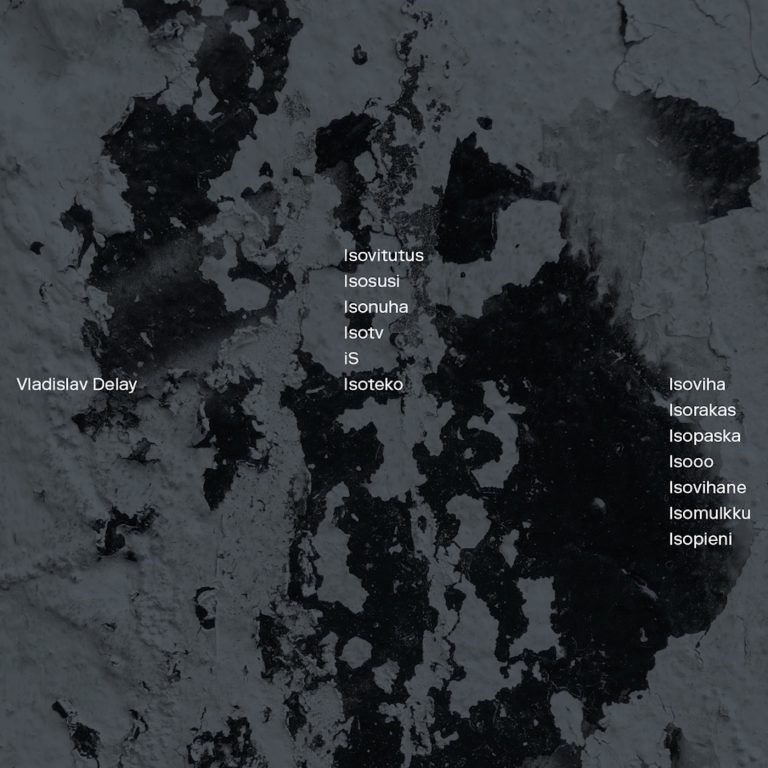Vladislav Delay is in an enviable position. He is one of a very few electronic musicians who can claim sireship over dozens of consistent, high-quality releases over the span of 30 years. Along the way, the Finnish artist has employed several genre-specific monikers, each fitting a certain mood. Behind it all stands the ineffable Sasu Ripatti, who’s become everyone from Luomo to Uusitalo to Sistol to The Dolls to, yes, Vladislav Delay.
Luomo is Ripatti’s most overtly pop-leaning iteration, which was also responsible for the birth of an entire micro-genre within dance circles: the ubiquitous “microhouse.” Ripatti created and perfected this sound on Vocalcity, a release so immediately indelible, so sweeping and gorgeous, it was recognized, at least in the snobby small circles, as an electronic masterpiece.
Things were sadly not as simple as they seemed, however, as Ripatti’s relationship with Vocalcity has always remained a bit tangled. The album should have rightfully taken its place between Burial’s Untrue and Andy Stott’s Luxury Problems as one of dance’s preeminent full-lengths of the 21st century. It was considered so darn good, in fact, that Philip Sherburne, of Pitchfork and The Wire reviewer and columnist fame, was so moved by this particular mixture of Mille Plateaux chic with the conspicuous tropes of early 2000 house, he poured out a sip for his homies, then irrevocably typed in the word “microhouse” while assessing the album’s manifold qualities. And this, no less, all written up in a year-end feature in a special issue of The Wire!
But, despite the newly created lexicon that surrounded it, Vocalcity languishes in obscurity in comparison to Vladislav Delay’s steady output albums and EPs. He has flitted fairly freely between his names and their respective genres, but he is still far and away best known for the ever-morphing, ever fractured, ever deconstructed, minimal dubby techno he lays down as Vladislav Delay.
Like a few other young producers who would go on to be prolific in the scene, Vladislav Delay got his start in the mid-90s putting out dub techno records for Chain Reaction. Big names like Monolake, Porter Ricks, Vaniqueur, and Fluxion, are all responsible for giant slabs of earth-shaking low end monsters, all relentlessly uniform in their quality; each as grey and stark as the steel-trapped utilitarian cover art on each album. From Mutilia, his debut on Chain Reaction, into the 2000s and beyond, most of his dub- and minimal-techno tendencies are explored under his Vladislav Delay moniker. Under this moniker, he has remained consistent throughout the early years, with albums like Entain and Anima both dropping in the first two years of the century. These albums still possess an almost supernatural aura with the patient, shamanic-like structures of the songs.
The direct effect of these sounds are apparent and appreciated right away on Isoviha, Vladislav Delay’s latest release. He has stated that he intends to allow some of the noises of the outdoors in so they can mingle with noises more inherently indoors (specifically taking cues from Raka and Raka II, his last two albums, which dropped in 2020 and 2021 respectively).
The album begins with “Isovitutus”, which, in the span of two minutes, systematically chips away at the more ambient, dreamy underpinnings, until all that’s left are loops of extremely exciting music, coming up off the reels all crooked like he’s the dang Field or something. This all builds to a frightening climax that makes way for the second track, “Isosusi”, which quickly confirms that the slightly bizarre first song is no anomaly. Though not as bathed in amniotic fluid as the first, it keeps things off-kilter in its speed, volume and rhythm. Drones mutter in the background and percussion skitters and stutters in interesting, barely comprehensible cadences.
Fortunately, one of my absolute favorite things in electronica is when a four-on-the-floor artist puts out an album without (m)any beats. It is no small feat: think Anders Ilar’s Ludwijka Extended Visit or Answer Code Request’s Gens. There is a reason many won’t have heard of either of these.
So this is what we have, then. A noisy, (erratically) bouncy, drone-y, vaguely Strawberry Jam-y set of tracks, which handily establish Vladislav Delay as operating at the top of his game, and still sounding, really, like very little else out there. Try as you may; you will likely have no idea what any one track is going to sound like 20 seconds on. Thankfully, there is typically a steady rhythm present, which casts a much-needed sense of order over the proceedings. Without it, this album would be too unruly with its myriad slices of dark blasts and cacophonies. With it, it’s like a pinball that stays within the confines of its table. The ball can spin out wherever it wants, and it can conjure delightful speed-warp sounds along the way. It’s never going to pose the threat of flying across the room, or, you know, at your head. Safe for now, even if the music is most certainly not.

